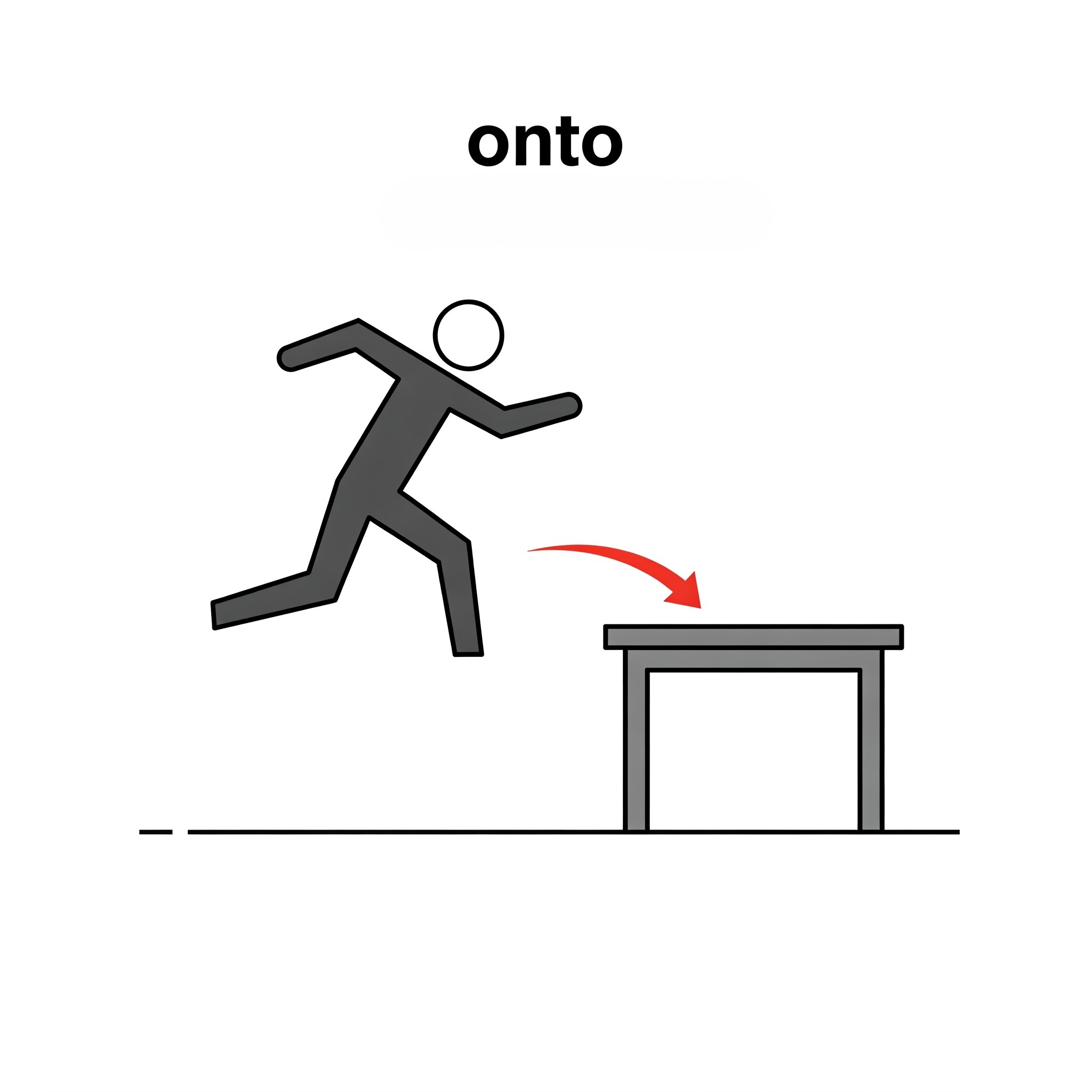Onto
Definition
The word onto is a preposition that indicates movement toward a surface, position, or place. It can also denote the state of being aware of or informed about something.
Parts of Speech
- Preposition
Pronunciation
American English
- IPA Pronunciation: /ˈɑːn.tuː/
- Respelling: ON-too
British English
- IPA Pronunciation: /ˈɒn.tuː/
- Respelling: ON-too
Etymology
The word "onto" derives from the combination of "on" (denoting position or location) and "to" (indicating direction). Its usage began in Middle English and has been used in its current form since the 16th century.
Derivatives
- Onto-logic (noun, rare)
- Onto-it (adjective, informal)
- Onto-ology (noun, rare)
- Ontologically (adverb, related to being or existence)
- Onto-ness (noun, rare)
Synonyms
- Upon
- To
- Over
Antonyms
- Off
- Away
- None
Usage
The term "onto" is commonly used to describe movement toward or positioning on a surface. For example, "He climbed onto the roof" or "She is onto a new idea."
Related Terms
- On: Refers to a position in contact with a surface.
- Into: Indicates movement toward the interior of something.
- Over: Denotes movement or position above something.
Detailed Definitions
Preposition
- Indicating movement toward a surface: Refers to the action of moving onto something.
- Example: "He jumped onto the table."
- Denoting awareness or realization: Refers to the state of becoming aware of something.
- Example: "She is onto the solution for the problem."
- Indicating physical or metaphorical position on a target: Refers to positioning oneself or something on a destination.
- Example: "Place the book onto the shelf."
onto



🇨🇳 Mandarin Chinese
- "到...上" (Dào... shàng)
- Pronunciation: /taʊ ʂɑŋ/
- Respelling: "dao shang"
🇮🇳 Hindi
- "पर" (Par)
- Pronunciation: /pər/
- Respelling: "par"
🇪🇸 Spanish
- "a"
- Pronunciation: /a/
- Respelling: "a"
🇫🇷 French
- "sur"
- Pronunciation: /syʁ/
- Respelling: "sur"
🇸🇦 Arabic (Modern Standard)
- "إلى" (Ila)
- Pronunciation: /ʔi.laː/
- Respelling: "i-la"
🇧🇩 Bengali
- "উপর" (Upar)
- Pronunciation: /upoɾ/
- Respelling: "upo-ro"
🇷🇺 Russian
- "на" (Na)
- Pronunciation: /na/
- Respelling: "na"
🇵🇹 Portuguese
- "em"
- Pronunciation: /ẽj̃/
- Respelling: "eng"
🇮🇩 Indonesian
- "ke atas"
- Pronunciation: /kə ʔa.tas/
- Respelling: "ke a-tas"
🇩🇪 German
- "auf"
- Pronunciation: /aʊf/
- Respelling: "a-uf"
🇯🇵 Japanese
- "へ" (E)
- Pronunciation: /e/
- Respelling: "e"
🇻🇳 Vietnamese
- "lên"
- Pronunciation: /lɛn˧˩/
- Respelling: "len"
🇰🇷 Korean
- "에" (E)
- Pronunciation: /e/
- Respelling: "e"
🇹🇷 Turkish
- "üzerine"
- Pronunciation: /yˈze.ɾi.ne/
- Respelling: "yze-ri-ne"
🇵🇰 Urdu
- "پر" (Par)
- Pronunciation: /pər/
- Respelling: "par"





